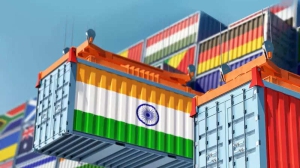The rehabilitative process of victims is not conducive to their socio-economic empowerment and there is no concrete prevention and protection strategy in place. The current law is not survivor-centric
Human trafficking is a complex and opportunistic criminal activity which preys on the socio–economic and political vulnerabilities of people. Unfortunately, it is an enormously-lucrative business and there are significant challenges in determining its prevalence.
The National Crime Records Bureau’s (NCRB’s) statistics reveal that the purposes of trafficking include forced labour, prostitution, other forms of sexual exploitation, domestic servitude, forced marriage and petty crimes. According to the NCRB, three out of five people trafficked in 2016 were children below the age of 18 years. Of these, 4,911 were girls and 4,123 were boys. NCRB data shows that prostitution was the second-major purpose for human trafficking in India, after forced labour. Sex trafficking in India is increasing mainly because perpetrators don’t face punishment, there is lack of accountability on the part of the authorities and the rehabilitative process for those rescued is not conducive for their socio–economic empowerment.
There is no concrete prevention and protection strategy in place and the current law, the Immoral Traffic (Prevention) Act (ITPA) is not survivor-centric. A lot needs to be done in a collaborative manner between key stakeholders, such as the Government and civil society organisations, for any substantial change to take place.
One nationwide issue is the forced institutionalisation of victims in shelter homes, wherein girls and women “rescued†from brothels by the police, are institutionalised along with destitute women. This is done on the pretext of ensuring their “safety†and “protection.†The ITPA says that after the police have rescued a victim of sex trafficking, the person has to be produced in court (in case of an adult) within 28 days, along with a detailed report of the family and their willingness and capacity to protect the victim from further exploitation. In case family reunification does not seem to be in the best interests of the woman, she is to be placed in a protective home for rehabilitation with appropriate services. Nowhere, does ITPA specify that this home should be an institution wherein the freedom of the survivor is monitored and controlled.
Yet, there are several arguments in favour of institutional care of victims of sex trafficking. Shelters are needed when the family of the victim may not be equipped to protect and provide support for recovery or rehabilitation. In some cases, the victim may have been trafficked by someone in the family or among relatives. Therefore, returning to the family means risking the safety of the victim and putting her in danger of being re-trafficked. In such cases, the children or women may require longer-term rehabilitation and reintegration in a new community without having to return to her family or village.The threat of traffickers is another reason for running heavily-guarded shelter homes. When a child or woman is rescued from a brothel — pimps, madams and brothel managers try to get in contact with her and threaten, coerce or manipulate her to not give a deposition in court and deny being trafficked or exploited. A child, or even a young woman in her late teens, is vulnerable to such manipulation, coercion or threat. The relationship between exploiters and victims of abuse is complex — and psychologically, a victim is often under strong control of abusers. Therefore, agencies running these NGOs maintain strong control over outsiders’ access to children and women in shelter homes, monitor phone calls and minimise contact with the outside world.
At the same time, there are several arguments against the institutionalisation of victims of sex trafficking. Many adults are institutionalised in these shelter homes for months and years, with no accountability from those running the shelter, who could be physically, emotionally and psychologically abusive, especially if they have a strong moral stand against prostitution. Most women or children have been trafficked from one State or country to another. Little has been done to build systems and services to make interstate communication and coordination faster. Due to these delays, the period of stay in these shelters becomes arbitrary and indefinite.
ITPA does not specifically recognise the issue of consent of adults for institutionalisation. At times, a victim may feel that the conditions of the shelter are so oppressive that she would want to go back to the brothels as it allowed her more autonomy. With the objective of ensuring protection and safety, the shelters often take control of the women’s actions, options and decisions. Moreover, the survivors are often afraid to reveal their addresses to social workers because they do not want their families to know about their activities as prostitutes, as it could lead to rejection.
Much can be done to correct the situation, including taking the consent of the person rescued within 28 days. She should have the right to reject institutionalisation and shelter-based rehabilitation even if she is a victim of trafficking. The State and NGOs should have alternatives, where she can be free and not incarcerated. Consent should be taken by independent professionals, mental health professionals who do not have a stake in running of shelters or have biased positions on prostitution. Community-based rehabilitation should be explored as alternatives wherein a survivor of trafficking and/or sexual exploitation is assisted in rehabilitation in a community, where she stays in an independent shelter or with her family, and social workers assist her in availing health services, legal aid, welfare schemes and income opportunities.
The ITPA must be challenged and processes of consent-taking, independent legal aid to survivors should be set in place. Changes need to be made to the provisions of the Trafficking of Persons (Prevention, Protection and Rehabilitation) Bill and that is what Indian Leadership Forum Against Trafficking is moving towards, advocating for these changes and bringing about substantial impact.
(The writer is a human rights activist.)

























